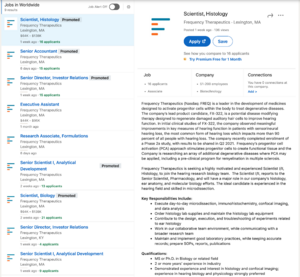Yes! I have read a few articles about testing drugs in the developing world, I'll check the browser history on my old laptop. I'm sure any of the Google-Elite here can find them. There are ethical concerns, but companies test drugs in countries like Vietnam, Cambodia, Thailand, Laos, and others nearby where the government oversight is particularly lax. It's more likely that Astellas (or a subsidiary) would be involved in this effort in coordination with a local university / hospital. There isn't anything illegal about it, but often why first-in-human trials are conducted in these countries, especially when the safety in the human model isn't well understood.
I would speculate that many of these companies do this; but through subsidiaries, or by a specific university.

 Member
Member

